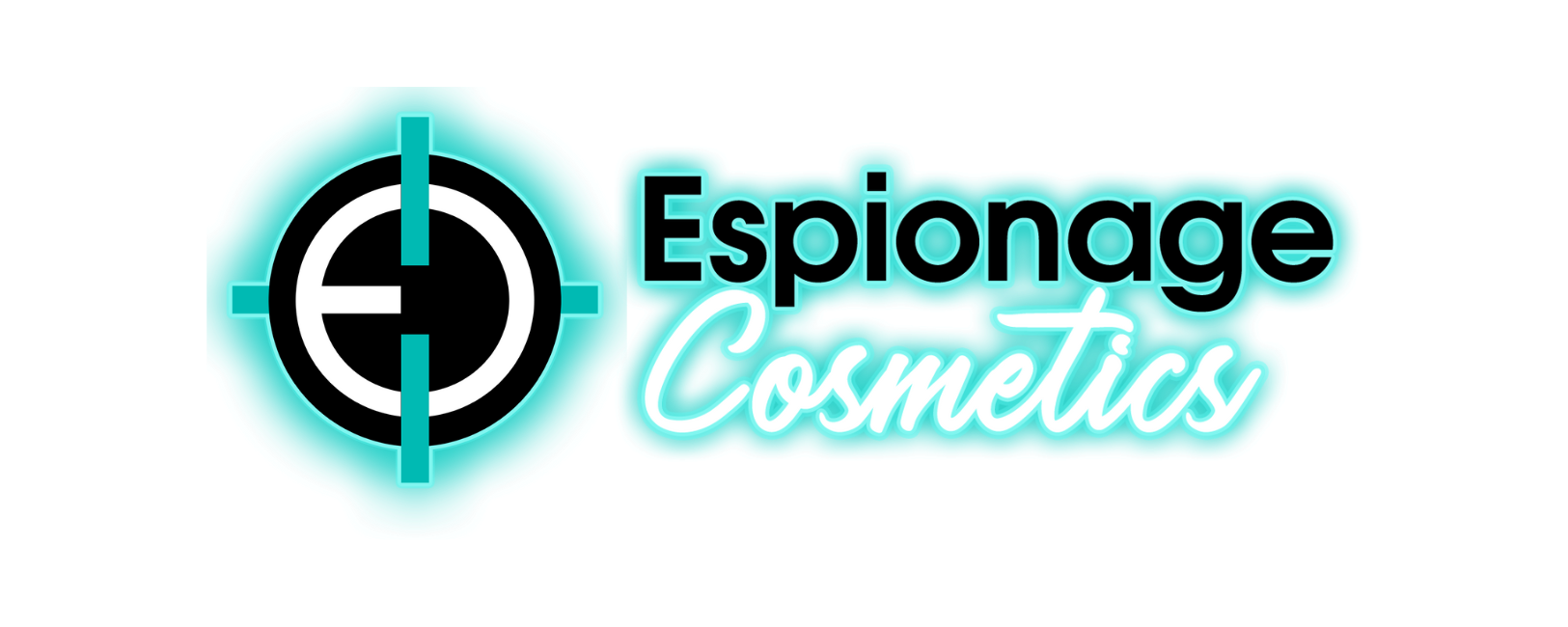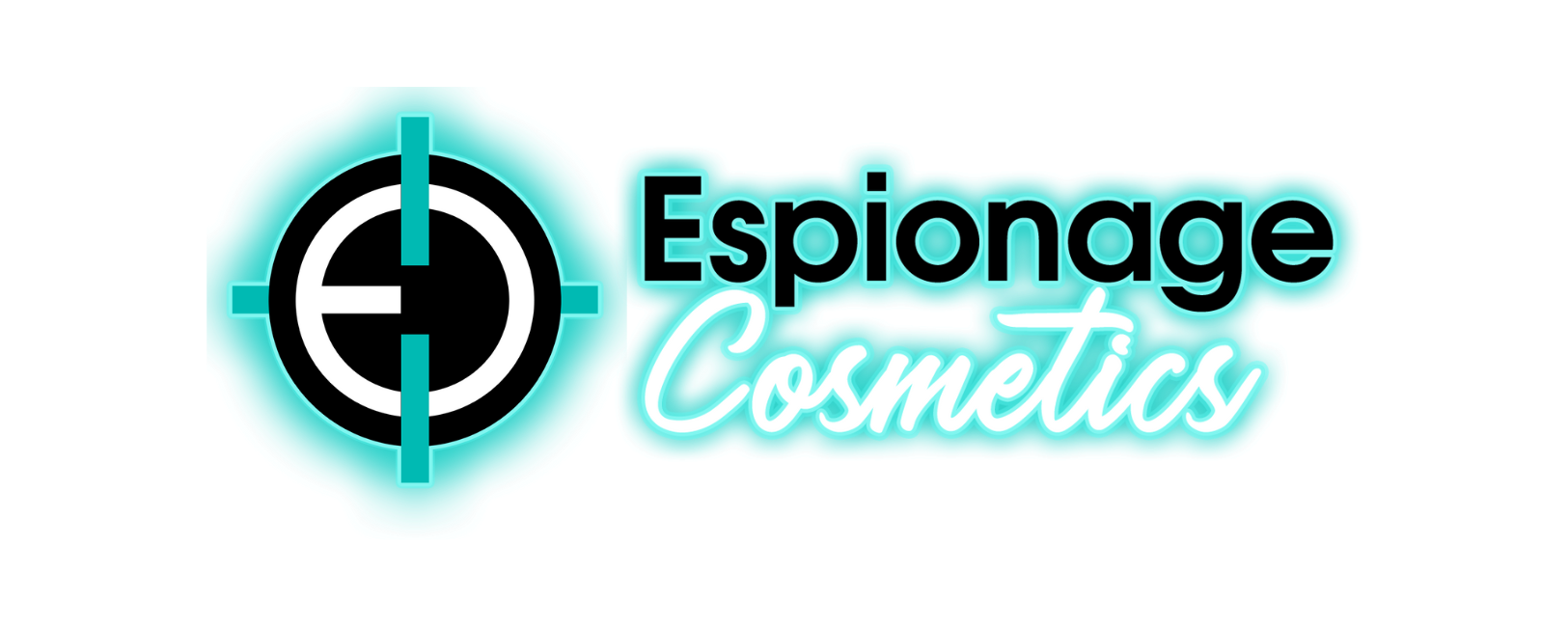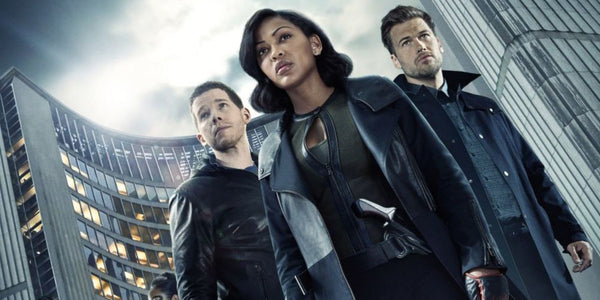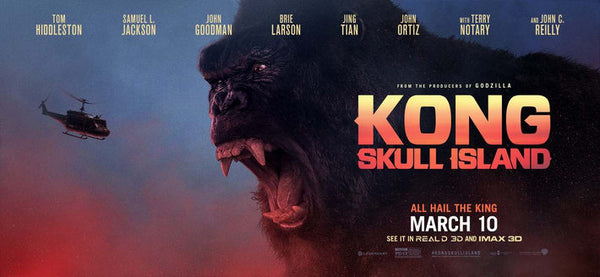This weekend, when you head to the box office at your local movie theater, take a look at the many titles gracing the screens. You might note a feeling of excitement with the promise of action around the corner as the word KONG seizes your attention.
With rave reviews sweeping across social media, you can't help but wonder what sets this revisiting of King Kong apart from the rest of the "creature" films well-embedded into cinematic history. Is your curiosity peaked?
The Nerd Misfits of Espionage Cosmetics are happy to report you can get an inside look with this exclusive interview with Godzilla and KONG screenwriter Max Borenstein.
In a society fixated on career boundaries based on your college degree, Max broke free and applied his English studies in his writing. In this Q&A, we get Max's origin story, noteworthy experiences, and insight on crafting the modern creature feature.
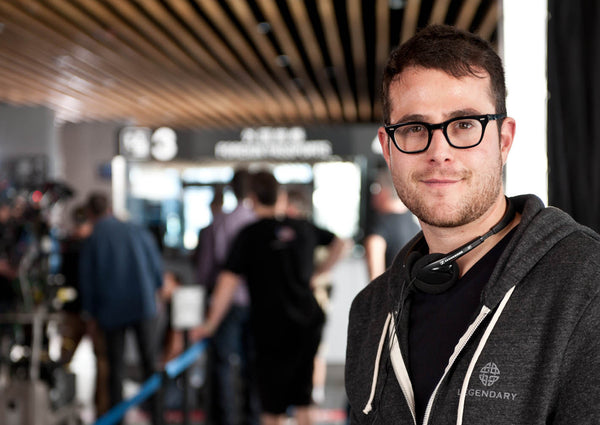
Max Borenstein || Photo: deadline.com
IN THE BEGINNING...
EC: Love for film has always been in your blood. What is your earliest memory of latching onto film and what works had an impact on you?
MB: I fell in love with movies because I got exposed to them at an early age - not just the blockbusters of my era, but older films my parents loved. My parents are older than many other parents of my generation - they had me late - so the films they loved that they exposed me to from an early age felt to me like hidden gems. Things other friends of mine hadn’t seen and weren’t even aware existed. This is before the Internet, mind you, so it was easier to feel like you’d discovered something special when it came to films that came out 30-40 years before and weren’t all that easy to come by on video (yes, video - again, Google it). In any case, I don’t know that I’d have fallen in love with older films in the same way had it been as easy to access them as it is now - there was something privileging and special about feeling like you really had to dig to unearth hidden jewels. The Internet makes it so damn easy.
BALANCING ACT...
EC: How did your time at Yale influence the career path you are on now? Any experiences or courses worth noting?
MB: I didn’t study film in college - not explicitly, anyway. That wasn’t because I hadn’t ‘caught the bug’ but really quite the opposite - I’d been an obsessive film fanatic since the start of high school (I’d rent 3-4 movies a night and dub them with a pair of VCRs - those were a thing, you can Google it - while doing homework), so by the time college rolled around there wasn’t much in the way of film theory or classic moviedom I hadn’t already delved into on my own…or so I thought. In any case, I decided to pursue the sort of education I hadn’t given myself - reading stuff I wouldn’t read without a syllabus to recommend it - and that’s why I studied English, with a focus on poetry. I did theater a little on the side and kept writing screenplays over summers, so by the time my senior year rolled around I was jonesing to actually make something of my own.
EC: What was it like balancing such a project (the feature film) with academia?
MB: The film program at Yale at the time was relatively meager in comparison to places like USC or NYU and largely focused on film theory in any case, so it was actually a benefit being an outsider because had I been seeking course credit the powers that be would have told me making a feature length film was a totally batshit crazy idea - they’d have pushed me toward a short instead. Since I had no official types advising me, I was left free to pursue my batshit crazy notion and I wrote a feature length film, which my producer and I cast with amazing undergrad actors (Zoe Kazan, Fran Kranz, many more) - and we just made the thing, shooting on nights and weekends, editing in my spare time and on holidays. I don’t know how I managed to balance it - it was a lot of work - with all the course work of my senior year, except it taught me a lesson that has proven valuable over the years: time expands to fit what needs to get done. Somehow it works that way with deadlines. If I have nothing to do, I’ll piss away a day spiraling down Internet holes. If I have too much to do, somehow the time expands to fit it. Or it has so far. It’s probably unwise for me to go off tempting fate…
VICTORIES THAT KEEP YOU GOING...
EC: In Her Place is a remarkable short film. You teamed up and wrote the screenplay with Kevin Hamedani. Coincidentally, he is from our area (in the Pacific Northwest). Can you tell us more about that project and collaboration?
MB: Thanks! Very proud of that one. Kevin is a good friend of mine who has written and directed several indie horror-comedies and I just love his sensibility - and him as a friend - and when he sent me a drama script that was very close to his heart as an Iranian American, I was blown away. This was a feature version of what ultimately became In Her Place. I had an idea of how we could do a short version with a strong punch (short films, in my view, are like jokes: they need a set up and a punch-line), and he dug it, so we conceived the script together and I helped him get it on its feet. It’s been very well received and Kevin is reworking the feature script now, so that’s been a gratifying project to be a part of.
EC: When writing episodes for Minority Report, did you find challenges writing for TV versus film? What adjustments did you have to make?
MB: I could write a book about the differences, but the most important thing is you’re still telling stories. Each medium presents its own challenges, and there’s an inherent challenge in writing science fiction for network television, where certain traditions place a primacy on spoon-feeding information to the audience that might better be left to seep out slowly. Still, the biggest challenge by far with broadcast television is the time pressure under which one has to make the episodes. Films take literally years to make. It gives you time to plan - and even then you find yourself scrambling until the final deadlines. Broadcast television takes weeks - sometimes mere days - between script and final edit. That’s extremely difficult with a show that has significant visual effects requirements. Not to mention the challenge of trying to tell an ongoing narrative while also balancing weekly procedural stories… It was very challenging but also a tremendous learning experience in every way.
WHEN THE WORLD ENDED...
EC: What were your initial thoughts when joining in the production of Godzilla? At first, did you have a strong sense of responsibility to long-term Godzilla fans that were disappointed by the 1998 film?
MB: I came to Godzilla initially with little personal baggage. I was a huge fan of a different set of Toho films growing up: the movies of Akira Kurosawa. But I hadn’t really seen Godzilla films, so I was only vaguely aware of them as cheesy kids movies. And of course I’d seen the ‘98 movie and thought it was pretty lame. So when the opportunity of doing this one came about, I was a pretty clean slate. I watched the original Japanese cut of the first film from 1954 and I was blown away because it really isn’t cheesy at all. It’s a disaster film touching on fears of nuclear war (remember, it was made only 9 years after Japan was bombed!) and that felt really visceral and powerful. I thought: if we can do something like that, really key in on fears and sensitivities that feel present in our world, we can do something special.
EC: During the process of writing Godzilla (2014), did you consult seismologists or any other expert in any other fields? If not, was any information drawn off of 2011’s Great Tōhoku Earthquake?
 MB: Yes and yes. There’s this terrific resource for Hollywood creative types called the Science and Entertainment Exchange. It’s a non-profit wing of the National Academy of Sciences that basically exists to help writers and directors interface in one-on-one conversations - consultancies, essentially - with top scientists in every field. They like to think of themselves as 1-800-Dial-a-Scientist and they really are. It was all started by Janet and Jerry Zucker (of the Airplane and Naked Gun movies!) and it’s just an invaluable resource. So I was able to speak to seismologists as well as nuclear physicists and biologists of various sorts to try to nail down some technical ‘research’ that could underpin what’s of course at its core an impossible fantasy. But for me as a writer that sort of stuff is essential - and especially given the tone we wanted to achieve with Godzilla, which was one that would hopefully feel plausible - like ‘what if’ this really happened in the world we know and live in. The recent devastating quake in Japan and the Fukushima meltdown were all very much in mind as I set about envisioning a ‘grounded’ way into a new Godzilla story. We’d all witnessed this genuine disaster (some of us had lived through it directly) and that made the absurdity of a giant lizard stamping through the city streets somehow less absurd and instead feel just a few notches beyond something we’d all experienced. That was key for me - and Gareth Edwards, the director - in terms of hooking into the tone that became the hallmark of the film.
MB: Yes and yes. There’s this terrific resource for Hollywood creative types called the Science and Entertainment Exchange. It’s a non-profit wing of the National Academy of Sciences that basically exists to help writers and directors interface in one-on-one conversations - consultancies, essentially - with top scientists in every field. They like to think of themselves as 1-800-Dial-a-Scientist and they really are. It was all started by Janet and Jerry Zucker (of the Airplane and Naked Gun movies!) and it’s just an invaluable resource. So I was able to speak to seismologists as well as nuclear physicists and biologists of various sorts to try to nail down some technical ‘research’ that could underpin what’s of course at its core an impossible fantasy. But for me as a writer that sort of stuff is essential - and especially given the tone we wanted to achieve with Godzilla, which was one that would hopefully feel plausible - like ‘what if’ this really happened in the world we know and live in. The recent devastating quake in Japan and the Fukushima meltdown were all very much in mind as I set about envisioning a ‘grounded’ way into a new Godzilla story. We’d all witnessed this genuine disaster (some of us had lived through it directly) and that made the absurdity of a giant lizard stamping through the city streets somehow less absurd and instead feel just a few notches beyond something we’d all experienced. That was key for me - and Gareth Edwards, the director - in terms of hooking into the tone that became the hallmark of the film.
EC: When working on screenplays, what do you find most effective? Raw action or humanity and empathy? If the latter, what role does Godzilla play for society?
MB: In a movie, action is meaningless - literally meaningless - if it isn’t tied to emotion, humanity and empathy. That’s what gives our stories meaning - every story. It’s challenging to do within the constraints of a big budget action film, but it’s essential. For me, the key to Godzilla was finding that point of entry that would feel accessible for audiences. It started with viewing this not as a monster movie but as a natural disaster movie. We’ve all experienced natural disasters in person or on the 24-hour news and so if we could tap into that emotional sense of vulnerability and fear, but also the way events like that bring people closer together and put into high relief what’s really important in our lives…well, that felt like something that could make a Godzilla film emotionally accessible. And then the trick was twisting it so by the end we actually fall for the big guy - and emotionally connect with ‘Him’ because he’s just misunderstood. That was the big coup and I think we pulled it off in the end.
PRESENTING THE KING...WITHOUT SPOILERS...
EC: On what scale is King Kong re-imagined? If you can share with us, will we receive the same amount of time with King Kong as previous imaginings or will this be an entirely different take with a different balance of human interaction?
MB: Kong is enormous in the new film, if that’s what you mean - big enough to fight Godzilla one day…which he will. And the film itself is on an epic scale. Even so, it’s different than classic Kong films in conception. We spend a considerable amount of time with Kong on screen, but it’s not the classic beauty and the beast tale we’ve seen before. Obviously, I’m biased, but I think the movie is quite good and exceedingly fun. Excited for people to see it.
